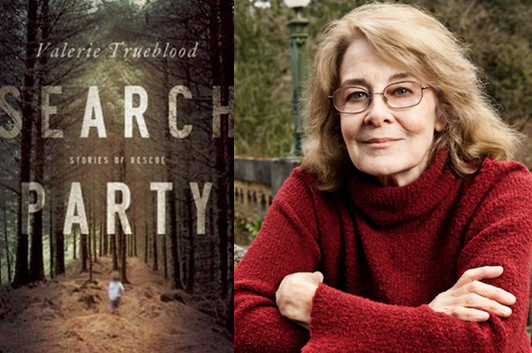Sophie Cabot Black, “Summit”
As you rise you must remove any sign
Of rising: footprint, a branch displaced,
The shifted rock. To arrive is to leaveThe way behind you unchanged, as the cold dawn
Picks over what is left. Up in regions
Not yet named, where scattered quartzBetrays a vein private with gold, where antlers
Locked and died in struggles of domain,
The last ones still against the skyShow the way out. In such air
Is no room for mercy. Days when we go up
The mountain, then down, only to head upAgain. Up to the edge, hurrying
To get however much done before weather.
Sophie Cabot Black’s new collection, The Exchange, also includes “Eat What You Kill,” “Love Poem,” and “It Never Goes Away,” all of which were first published in Boston Review. Then there’s “Private Equity” (The New Yorker), plus two poems from Slate: “Sheetrock” and “Biopsy.”
I met up with Sophie at Book Court, an independent bookstore in Brooklyn, earlier this summer, to record an episode of The Handsell, where we talked about the metaphorical framework that runs through these poems, and then she came up with some other poets for me to read when I told her I was a fan of Matthea Harvey, Paul Muldoon, and Kevin Young.
7 August 2013 | poetry |
Valerie Trueblood & Salter’s People

photo: Lucien Knuteson
Longtime Beatrice readers may recall Valerie Trueblood’s first guest essay, in which she celebrated the short stories of Eudora Welty. Trueblood has a new collection out, Search Party, its stories linked by the theme of “rescue,” interpreted in all sorts of ways. Stories like “Downward Dog” and “Think Not Bitterly of Me” are finely honed character studies, and though it’s not quite right to say it’s a “pleasure” to get inside these characters’ heads, it’s a revelatory experience. And Trueblood is here to tell us about another writer she admires for his character work…
This is the short story’s moment, we hear. Yet when will reviewers stop awaiting a “full-length” work? When will “The Death of Ivan Ilyich” rise up to petrify the hand about to type the word “miniature”? When will the story call in its chips as a form? When will it come out?
All the talk is about James Salter’s new novel All That Is, but there must be many readers like me who have been reading and thinking and marveling for years over his uncanny gift for the short story form.
The charge has been made, with this new novel, that his characters look down on women. Setting aside the possibility that those making this discovery in his work have not read anything else written by a male, we may note that in fiction as in life the sexes often look down on each other. Salter does indeed say things like “There was not much more to her than met the eye,” but his louche women are more likely to remind us of Jean Rhys’s, and of her men, for that matter, than of Hemingway’s women. These men of his who say the women they meet are “too human” are not at ease, they suffer for what is missing in themselves, or what’s extra and has them in its power: the craving or fetish, the sometimes ruinous allergy to the commonplace or routine, a frozen loneliness, a hankering for both sexes, an outgrown love still “in the great central chamber” of their lives. The verb love is most often in the past tense.
The wonder is that so much of the delight of existence, ecstasy really, can flow under and through such accounts.”Character” is the wrong word for Salter’s story—men and the women with whom they exchange hurts. Where short stories are concerned, the word “character” seems to me overused. We can say “character-driven” about a novel, but the short story is generally bent on something else with its inhabitants, and Salter is a master of the powerful leashed figure held in the cage of the form. His people are recognizable humans, though more beautiful than most, but so briefly seen that the awful aura of the life on its way to them includes us in a way we would not have imagined when we met them a page or two before.
5 August 2013 | selling shorts |

 Our Endless and Proper Work is my new book with Belt Publishing about starting (and sticking to) a productive writing practice.
Our Endless and Proper Work is my new book with Belt Publishing about starting (and sticking to) a productive writing practice. 
